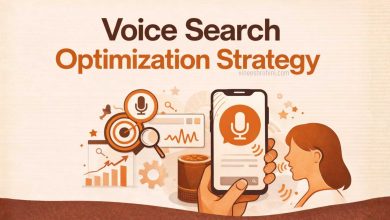“Revolutionizing Marketing” : The Power of Marketing Cloud Software
Marketing cloud software refers to a suite of digital marketing tools that help businesses manage their marketing campaigns more effectively. These tools are typically cloud-based, which means that they can be accessed from any device with an internet connection. The main purpose of marketing cloud software is to automate marketing processes and provide real-time analytics to help businesses make informed decisions. In this article, we will discuss the benefits of marketing cloud software and how it can help businesses achieve their marketing goals.
Benefits of Marketing Cloud Software:
- Centralized Data Management: One of the biggest advantages of marketing cloud software is that it allows businesses to centralize their customer data. This means that businesses can store all their customer data in one place and easily access it whenever they need it. This is particularly useful for businesses that have multiple marketing channels because it allows them to manage all their data from one platform. With centralized data management, businesses can personalize their marketing campaigns and deliver targeted messages to their customers.
- Increased Efficiency: Marketing cloud software automates many of the repetitive tasks associated with marketing, such as sending emails and posting on social media. This means that businesses can focus on more strategic tasks, such as analyzing data and creating content. Automated marketing processes can also save businesses time and money, as they don’t need to hire as many employees to manage their marketing campaigns.
- Real-Time Analytics: Marketing cloud software provides businesses with real-time analytics that allow them to measure the effectiveness of their marketing campaigns. With real-time analytics, businesses can quickly identify areas where their campaigns are underperforming and make changes to improve their results. This data can also be used to optimize future campaigns, so businesses can continually improve their marketing efforts.
- Personalization: Marketing cloud software allows businesses to personalize their marketing campaigns based on customer data. By analyzing customer data, businesses can create targeted messages that resonate with their audience. Personalization can also help businesses build stronger relationships with their customers, as they are delivering messages that are relevant to their interests and needs.
- Cross-Channel Integration: Marketing cloud software integrates with a variety of marketing channels, including email, social media, and SMS. This means that businesses can manage all their marketing channels from one platform and ensure that their messaging is consistent across all channels. Cross-channel integration also allows businesses to track customer behavior across multiple channels, which can provide valuable insights into customer preferences and behavior.
How Marketing Cloud Software Works:
Marketing cloud software typically consists of several modules that work together to manage marketing campaigns. These modules may include:
- Email Marketing: The email marketing module allows businesses to send targeted emails to their customers. With email marketing, businesses can personalize their messages based on customer data and track the performance of their emails in real-time.
- Social Media Marketing: The social media marketing module allows businesses to manage their social media accounts and schedule posts in advance. With social media marketing, businesses can analyze their social media performance and engage with customers on social media channels.
- Mobile Marketing: The mobile marketing module allows businesses to send SMS messages to their customers. With mobile marketing, businesses can create targeted SMS campaigns and track the performance of their messages.
- Analytics: The analytics module provides businesses with real-time analytics that allow them to measure the effectiveness of their marketing campaigns. With analytics, businesses can track customer behavior, identify trends, and optimize their campaigns for better results.
- Customer Relationship Management: The customer relationship management (CRM) module allows businesses to manage their customer data and track customer interactions. With CRM, businesses can personalize their marketing campaigns based on customer data and provide better customer service.
Examples of Marketing Cloud Software:
1. Salesforce Marketing Cloud:
Salesforce Marketing Cloud is a leading marketing cloud software that provides businesses with a suite of tools to manage their marketing campaigns. The platform includes modules for email marketing, social media marketing, mobile marketing, analytics, and customer relationship management. Salesforce Marketing Cloud is known for its robust automation capabilities, which can save businesses time and money.
Adobe Marketing Cloud is another popular marketing cloud software that offers a suite of tools for managing marketing campaigns. The platform includes modules for email marketing, social media marketing, mobile marketing, analytics, and customer relationship management. Adobe Marketing Cloud is known for its powerful data analytics capabilities, which can help businesses make data-driven decisions.
3. HubSpot:
HubSpot is a cloud-based marketing platform that offers a suite of tools for managing marketing campaigns. The platform includes modules for email marketing, social media marketing, mobile marketing, analytics, and customer relationship management. HubSpot is known for its user-friendly interface and affordable pricing, making it a popular choice for small businesses.
4. Marketo:
Marketo is a marketing automation platform that offers a suite of tools for managing marketing campaigns. The platform includes modules for email marketing, social media marketing, mobile marketing, analytics, and customer relationship management. Marketo is known for its powerful automation capabilities, which can save businesses time and money.
Conclusion:
Marketing cloud software is a powerful tool for businesses looking to manage their marketing campaigns more effectively. With centralized data management, increased efficiency, real-time analytics, personalization, and cross-channel integration, marketing cloud software can help businesses achieve their marketing goals and improve their ROI. Popular marketing cloud software platforms include Salesforce Marketing Cloud, Adobe Marketing Cloud, HubSpot, and Marketo. As businesses continue to rely on digital marketing to reach their customers, marketing cloud software will become an increasingly important tool for managing marketing campaigns.



